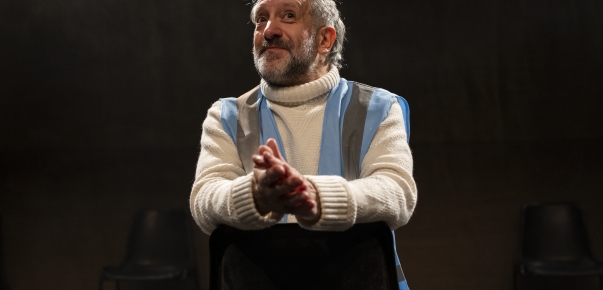The Madding Crowds – Rowdy Audiences & When to Call it a Night...
1 Jun 2023
There’s been quite a bit in the news recently about audiences getting over-excited during productions and creating a bit of havoc.
Now - obviously - BOV audiences are the nicest audiences around - but it wasn’t always like that.
Just a quick dig through the archives (and news headlines) reveal just how quickly things can go from Bard to worse.
Take a look… but don’t try this at home!

Early Bristol audiences in the 18th & 19th Centuries did not sit quietly throughout shows.
Instead, going to the theatre was as much about being seen and socialising, as watching a performance.
If your show wasn’t doing it for the crowd - you’d soon know about it.

4 October 1792, The Bristol Gazette reported several "miscreants who make a practice of throwing apples, stones, &c. at the Performers whilst on the stage". It got worse however - one Gallery-ite even fired a pistol during a performance (though thankfully no one was hurt).

Even famous actors weren’t guaranteed well-behaved audiences. On 18 January 1850 officers smuggled a terrier into one of the stage boxes, encouraging the dog to bark during William Macready’s final performance of King Lear.

In an 1880s performance of The Man in the Iron Mask the audience threw nuts at the metal helmet worn by the lead actor. The rattling noise was so loud that he had to shout, but eventually gave up and waited silently for them to grow bored.

Fights frequently broke out between drunk audience members. In November 1852 a woman’s arm was injured when a bottle was thrown from the Gallery into the Pit. Lit matches, pennies and even fireworks were regularly flung at unsuspecting Pit patrons.

Lawyer Henry Smith and businessman Richard Priest had an argument outside the Theatre in 1809, resulting in a duel (fought with pistols) in which Priest died.
Now facing a murder charge and with a reward of 100 Guineas on his head, Smith fled, ending up fighting in the Duke of Wellington’s army in Spain and Portugal. He was followed there by 19-year-old Ann Hayden Creedy from Bristol, who braved bandits, guerrillas and enemy troops to find him and persuade him to face justice. Back in Bristol he was found not guilty and the pair were married – What a drama that would make!

In January 1845 the Bristol Mirror reported that people weren’t attending the theatre as people insisted on smoking cigars during shows. Smoking in the theatre continued into the 1850s despite being forbidden by manager Sarah M’Cready in 1842.
Overcrowding was a recurring problem, with one man being pushed over the gallery railing in 1769. He was carried into the green room to be treated and felt well enough to return to watch the rest of the night’s performances but died a few days later, mostly likely from internal injuries.



